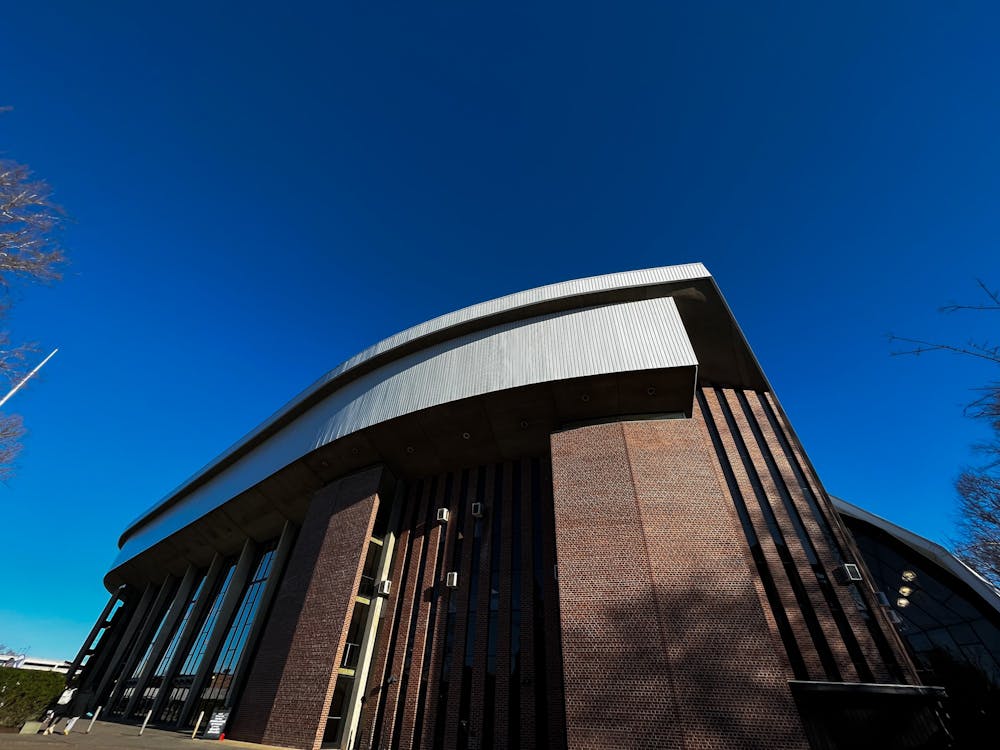With the men’s basketball team making a trip to the Sweet 16 at this year’s NCAA March Madness basketball tournament, questions have floated on how the University can continue to attract top talent to its athletics rosters.
While Princeton, like all schools in the Ivy League, does not offer athletic scholarships, Princeton student-athletes can profit off “name, image, and likeness” (NIL) opportunities. The Ivy League defines NIL as student-athletes “engaging for money or other consideration (goods, services, gifts-in-kind, or other forms of payment) in any engagement, business transaction, or advertising promotion.”
In July 2021, the NCAA adopted a new and much-debated NIL policy, permitting student-athletes to use their name, image, and likeness in commercial pursuits. Since then, members of many University teams have capitalized on the opportunity. Thus far, the University has not explicitly helped students find commercial opportunities, though that policy may be changing.
The NCAA, Ivy League, and the University itself have set guidelines student-athletes must abide by in all NIL ventures. The Ivy League prohibits NIL contracts if deals are not disclosed to the University. NIL contracts are also prohibited if the pay compensates an athlete’s participation in their sport (“pay for play”), if an athlete’s contract is arranged by the University, and if NIL opportunities are used as a recruiting mechanism.
Princeton also has its own unique regulations. For example, brands students work with cannot be in conflict with University contracts (e.g. Nike) and athletes cannot use University-owned logos or designs. Athletes are also not permitted to miss class or mandatory athletic department activities to participate in a NIL opportunity. Athletes are also restricted from NIL deals promoting certain products including adult entertainment, alcohol, or gambling.
Prior to entering into a NIL-related activity, student-athletes are encouraged to contact the Athletics Compliance office, which reviews deals to ensure they meet University standards. Athletes are required to submit a notification form “within seven days of entering into a contract or engaging in NIL-related activity.”
An Athletics Department spokesperson told The Daily Princetonian that “at the beginning of the academic year, members of our Compliance staff discussed Name, Image, and Likeness (NIL) education as part of their regular season-opening meetings with teams.”
Alexis Hiltunen ’24, a member of the Women’s Soccer team praised the University’s NIL policies, and reported that her team held a pre-season meeting to review NCAA, Ivy League, and University NIH policies, hosted by Kelly Widener, Associate Director of Athletics at the University.
In her time at Princeton, Hiltunen has worked with various athletic clothing and shoe companies, as well as magazines such as Sports Illustrated.
Maia Weintraub ’25, a member of the women’s fencing team, says while she cannot recall a meeting to review policies with University Athletics representatives, she noted that the University’s Athletic Compliance Office has been very attentive throughout the NIL process.
Weintraub has a contract with Absolute Fencing, a fencing equipment brand. In exchange for using her name, image, and likeness, the brand sends Weintraub gear to wear in competitions.
“We would create a contract draft about what I can or cannot accept in terms of compensation for my name, image, and likeness … [the Athletics Compliance office] would help me by saying, ‘Okay, you can have this, you can’t have this.’”

Hiltunen also engaged in non-athletic influencer contracts on social media prior to the NCAA’s NIL policy. According to Hiltunen, the University reached out, asking that she change her social media handles so that they did not exactly correspond with her name on the women’s soccer roster.
“I actually go by a separate name [Lex Hil] because before NIL was passed, I was already doing work through social media so I completely just shortened my name on both sides.”
Since the new NCAA policy has been put forth, Hiltunen has been able to use her full name again and post about Princeton soccer on social media.
Both Hiltunen and Weintraub note that they do not receive any help from the University in finding or facilitating NIL contracts, with Hiltunen saying, “I don’t think Princeton’s really on top of it as much as they could be or should be.”
On the University’s official NIL information page, it states, “The University will not be in a position to provide advice to students on outside commercial activity” — something Hiltunen claims is not true for all universities.
“I know friends that are getting recruited to schools where they are showing them how much money you’re gonna make, how we’re gonna make it happen, who were partnered with to help you,” Hiltunen said. “I think this is an incredible selling point, especially for athletes here who can’t get scholarships. So that’s what a lot of other schools are doing and I think we could kind of go into that space a lot more.”
There are some indications that the University is re-examining this policy, however. In communication with the ‘Prince,’ an athletic spokesperson shared that the athletics department is partnering with Opendorse an “NIL educational service, technology tool, and marketplace.”
According to the spokesperson, the partnership aims to “enhance our student athletes’ ability to be more educated on NIL and to capitalize on NIL opportunities.” Both “in-person seminars from Opendorse staff and on-demand education modules through Opendorse’s app” will be available to educate athletes once the program begins.
While a meeting was scheduled with student-athletes in late March regarding this new program, the meeting was subsequently canceled and has yet to be rescheduled.
Bridget O’Neill is an assistant News editor for the ‘Prince.’
Please direct any correction requests to corrections[at]dailyprincetonian.com.








